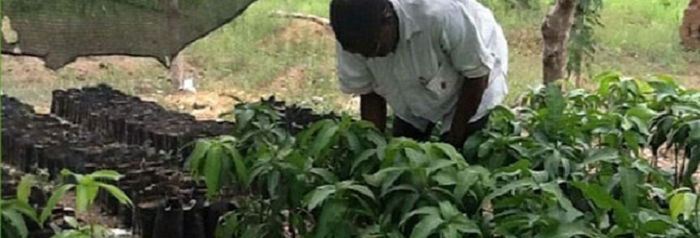
Unlocking the development potential of the savanna zone
Since independence, successive governments have come up with various policy interventions aimed at transforming specific segments of the country.
Advertisement
The idea is always to turn the potential of those areas into growth poles and opportunities that will help attract investments to reverse the poverty endemic in those areas.
Mention can be made of the special scholarship programme that Ghana’s first President, Dr Kwame Nkrumah, initiated for all people in the three northern regions.
While some of these programmes and policy interventions have suffered from generic human and institutional weaknesses, it goes without saying that they have played critical roles in lifting Ghana to a lower middle income status.
This explains why these targeted interventions should be encouraged and supported by all to help grow the economies of zones that are found to have enormous potential but lag behind due to inadequate financial resources.
One such zone is the Northern Savanna Ecological Zone (NSEZ), which covers 63 districts, municipalities and metropolises in five administrative regions.
The area is currently under the jurisdiction of the Savannah Accelerated Development Authority (SADA), a six-year-old institution that is now reinventing itself after emerging from some operational crisis.
Since 2014, when a new board and a new Chief Executive Officer, Mr Charles A. Abugre, took office, SADA has initiated various interventions aimed at strengthening its internal controls, plugging loopholes and reforming its operational structures to ensure that resources allocated to it are used judiciously.
As a national institution tasked with the transformation of the zone, the authority is hopeful that the SADA Master Plan, as it is called, will help attract private sector funds into the area for the proper utilisation of its comparative advantages in agriculture, tourism and human capital development.
While there is still more to be done, given the task that lies ahead, the Daily Graphic believes that the time has come for the entire nation to rally behind SADA and get it to accomplish its statutory mandate.
This is why we deem as opportune the call by the Coalition of Civil Society Organisations (CSOs) in the SADA zone to the various political parties to prioritise the authority in their respective manifestoes.
It is believed that a commitment from the political parties will help avoid a repeat of the situation where new political administrations normally change the names and focus of institutions just to satisfy their parochial interests.
The British colonial government that shaped the country’s development agenda limited the process to the triangular zone of Accra, Sekondi-Takoradi and Kumasi.
Even long after we have attained political independence, our development activities are focused on that same triangular zone, with no effort made to extend our railway network beyond Kumasi.
It is regrettable that the north is still relied upon for cheap labour, hence the influx of ‘kayayei’ to the south to engage in menial jobs.
The Daily Graphic challenges our political leaders to end the lip-service it applies to the development of the savannah ecological zone and rather let it be at the centre of the development process.




